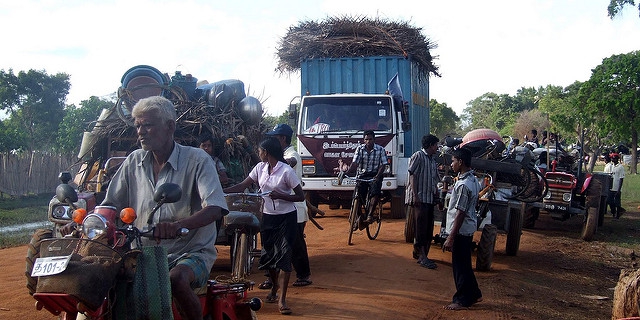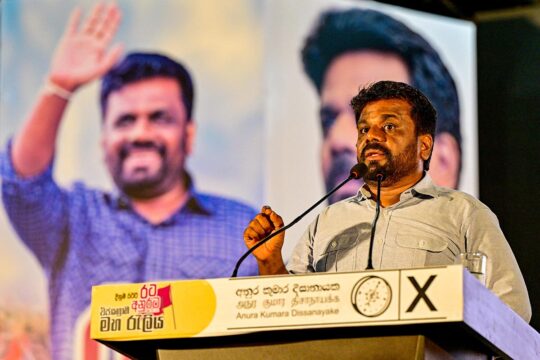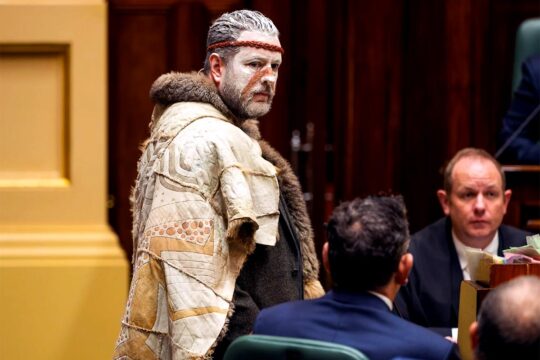Sri Lanka’s government this week asked the UN Human Rights Council for more time to fulfil its promises under a 2015 Resolution on justice for civil war victims. The international community welcomed the surprise election of President Maithripala Sirisena in early 2015 and his promises of justice and reconciliation, but a new report from international jurists of the Sri Lanka Monitoring and Accountability Panel (MAP) says the government has done little and is acting in bad faith. The civil war, pitting majority Buddhist Sinhalese of the south against minority Hindu Tamils of the north and east, left at least 40,000 people dead, 280,000 displaced and 65,000 disappeared. The final stage of the war in 2009 was particularly brutal, with Tamil civilians being used as human shields by the military, subjected to arbitrary arrest and torture. For a perspective on the MAP report and recent developments, JusticeInfo spoke to Kate Cronin-Furman, a senior Harvard researcher who is an expert on Sri Lanka.
The Sri Lankan government this week asked the UN Human Rights Council for more time to implement its promises on justice for war victims, but international jurists of the Monitoring and Accountability Panel (MAP) say the government is acting in bad faith. Do you agree?
I think it is true that they have not made the progress that they committed to, or indeed as much progress as would have been possible. It’s been a year and a half since those commitments were made, and there has been very little movement on any of them, so I think the MAP report is not over-stating matters when they say it is starting to look like this government does not mean to perform on its commitments. The government committed in 2015 to “Four Pillars” -- the Office of Missing Persons, prosecutions, the Truth Commission and the reparations arrangement. All that has happened to date has been the passage of the Act setting up the Office of Missing Persons in August, but so far it hasn’t been implemented at all.
I understand that the government also set up a Consultation Task Force with civil society representatives, but that the government has now rejected the findings of the Task Force…
What happened is that they sort of moved on the Office of Missing Persons without bothering to take into account what information had been gleaned from the Consultation Task Force. That body presented its findings in January. They took some missions from all over the country, spoke to people in all communities, and came back finding that it was very important to victims of human rights abuses to see actual movement on justice and accountability. Perhaps the most controversial of their recommendations was that the government needs to perform on its commitment to have international actors involved in the justice process, specifically on criminal prosecutions of those responsible for serious international crimes.
It’s very hard to tell sometimes what actually is an official policy statement from the government, because you’ll hear one thing from one person and something else from another minister, but certainly it is the case that they have not welcomed these findings, they have not indicated any intent to act on them, and actually the President and Prime Minister were not on hand to receive the findings as they were supposed to be.
Why do you think there is so much resistance in government circles to a war crimes court, especially one that includes international judges?
This government’s electoral constituency is heavily Sinhala Buddhist, and that is the population from which the military is drawn. It’s a population that really venerates the Sri Lankan military and feels very strongly that these are war heroes, so a push to prosecute these people is problematic electorally and also people who are potentially complicit in major crimes are still in positions of power in the government today. President Sirisena himself was acting Defence Secretary during the final stages of the war, so it’s not beyond question that he could be implicated, and there are any number of military commanders believed to have ordered or at least permitted atrocities who remain in government or have been appointed to ambassadorships abroad. So the prospect of prosecuting is tremendously politically unpalatable to this government, despite their commitments.
Is a war crimes court with international judges what the victims want?
When I have spoken to victims, they have said that is the bare minimum they will accept. So the presence of international actors in a hybrid set-up to prosecute war criminals is necessary, but probably not sufficient.
The MAP report calls on the UN and concerned countries such as the UK, US and India to get tough on Sri Lanka. It says the approach so far has been all carrot and no stick. Do you agree?
I think the international community was very quick to welcome the election of this government in 2015 because it did signal a break with the Rajapaksa regime (hardline former President), and that in their rush to support the new government in rolling back some of the negative political changes of the prior government, they have perhaps been overly-credulous about the promises on accountability and have failed to apply pressure where pressure was due. I think we are not likely to see US leadership on the issue now, and in the past several years the US has been one of the major leaders pushing this issue forward. Other actors are going to have to gap-fill, if they can. Certainly the statement from the US at the UN Human Rights Council on Wednesday, suggesting that there had been progress to improve accountability for past violations in Sri Lanka, is not going to help move things forward.
I think that if they do allow more time on these commitments, that allowance has to be paired with clear benchmarks for progress. The meaning of the commitment that Sri Lanka made in 2015 to allow international assistance has been fought over for 18 months now, with the Sri Lankan leadership routinely saying `no we never committed to international judges` and various members of the victim community and the international audience saying that the presence of international judges is vital and that it is a deal breaker. So going forward it needs to be absolutely clear what the requirements are, what the government is committed to, and the time frame.







